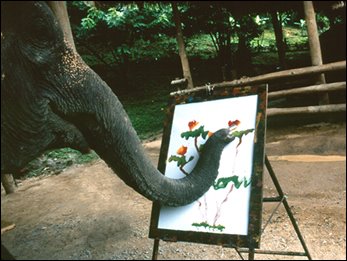This project (for any reading this besides by teacher) was one in which we were divvied into groups, assigned one of the Lincoln-Douglas senatorial debates, and commanded to collaborate and produce the front page of an imaginary newspaper that came out the day after our particular debate. My group got debate #4, which took place in beautiful Charleston, and decided that we each (it was a group of four) had to write at least one news-style article, which was a novel experience in principle. Before I embark on the irreversible voyage of reflective invective, I will furnish my unknown reader with a few choice excerpts from my compilation of day-to-day work logs.
Oct 6, 2008"Today I read some of the debate and took notes on newspaper format. I also spoke with my group members and we started deciding on the nuances of our approach, a setback compounded by the absence of a group member."
Oct 14, 2008"My article could have better conveyed the topic if I had read more of the debate transcript and used more quotes. I was unsatisfied with the final draft, and if I read [my article] in a real newspaper I would probably cancel my subscription."
Stephen Douglas focuses on defending against Lincoln and Trumbull at the Charlston senatorial debate yesterday due to the severity of their withering accusations. In the time remaining, Mr. Douglas used the Supreme Court’s decision in the Dred Scott case to reinforce his arguments that the black man is inferior to the white man and undeserving of equality.“I will not even qualify my opinion to meet the declaration of one of the Judges of the Supreme Court in the Dred Scott case, ‘that a negro descended from African parents, who was imported into this country as a slave is not a citizen, and cannot be.’” said Douglas, to great applause.
“I say that this Government was established on the white basis. It was made by white men, for the benefit of white men and their posterity forever, and never should be administered by any except white men.”
With this statement, Mr. Douglas denounced Lincoln’s stance that the phrase “all men are created equal” implies the equality of blacks as well as whites. Douglas also makes quite clear his position on the topic of slavery, and opposes Lincoln’s opening statements in which he clarified his position on the equality of blacks to whites.
“I say upon this occasion I do not perceive that because the white man is to have the superior position the negro should be denied every thing.” Proclaimed Lincoln at the beginning of his speech.
In this particular utterance, Lincoln expresses his belief that although a black man is inherently unequal to a white one, he still possesses the rights inherent to human beings, which are oppressed by the practice of slavery. However, Mr. Douglas chose to devote the majority of his time to refuting the accusations leveled against him by Lincoln (who drew copious evidence from the speech of Senator Trumbull), and only excoriated Lincoln’s statements on slavery in the closing minutes of his allotted hour and a half. This strategy could be seen as either a cunning political maneuver or a significant shortcoming, depending on the political orientation of the reader.

No comments:
Post a Comment